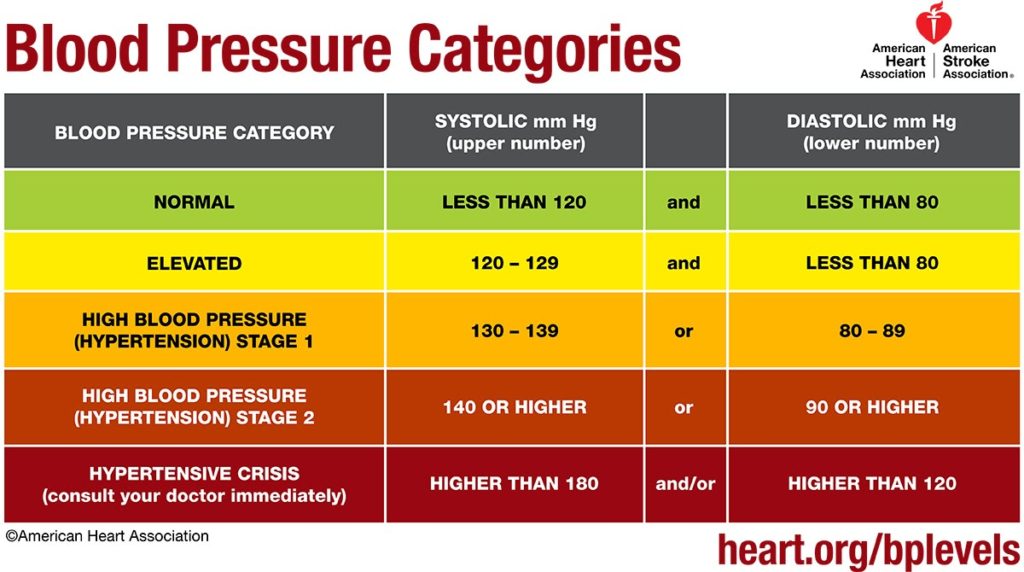What is a healthy blood pressure?
Blood pressure (BP) is a measure of the force your blood exerts against your arterial walls throughout your body.
Systolic vs. Diastolic Blood pressure
The top number in a BP measurement is called systolic blood pressure and it represents the pressure that your blood is caused by your blood on your arterial walls when the heart is pumping. The bottom number is called your diastolic blood pressure and represents the pressure that your blood exerts on your arteries when the heart is relaxed and filling with blood before beating again. People often ask whether the systolic blood pressure or diastolic blood pressure is more important. The truth is, both are important. Studies have shown that there is an increased risk of stroke and heart attack in people aged 40-89 who have an increase in systolic pressure 20 points above normal and diastolic pressure 10 points above normal.
Symptoms of high blood pressure
High blood pressure, or hypertension, is called a ‘silent killer’ for a reason. Often people don’t know that their blood pressure is elevated and the only way to know is to check your blood pressure regularly. Sometimes, however, there are symptoms of chest pain or pressure, a forceful pulse, dizziness, headache, blurry vision, etc.
Normal blood pressure

Managing your blood pressure
There are many techniques to improve your blood pressure. These include getting enough exercise – at least 150 minutes of moderate cardiovascular activity or 75 minutes of vigorous cardiovascular activity per week, reducing stress, getting enough sleep, limiting your salt intake, maintaining a normal weight, and abstaining from smoking. If these lifestyle modifications are not enough or to protect you from the deleterious effects of high blood pressure as you work on these changes, you may need to start blood pressure medications to control your readings. You should discuss this with your doctor.
Blood Pressure Medications
There are many different classes of blood pressure medication that all work slightly differently. Your doctor will help decide which are best for you. Oftentimes, combining different classes of medication is necessary to achieve a healthy blood pressure.
As always, if you have questions or concerns about your blood pressure or blood pressure management, talk to your doctor.
LOCATIONS
Contact us for more information.
